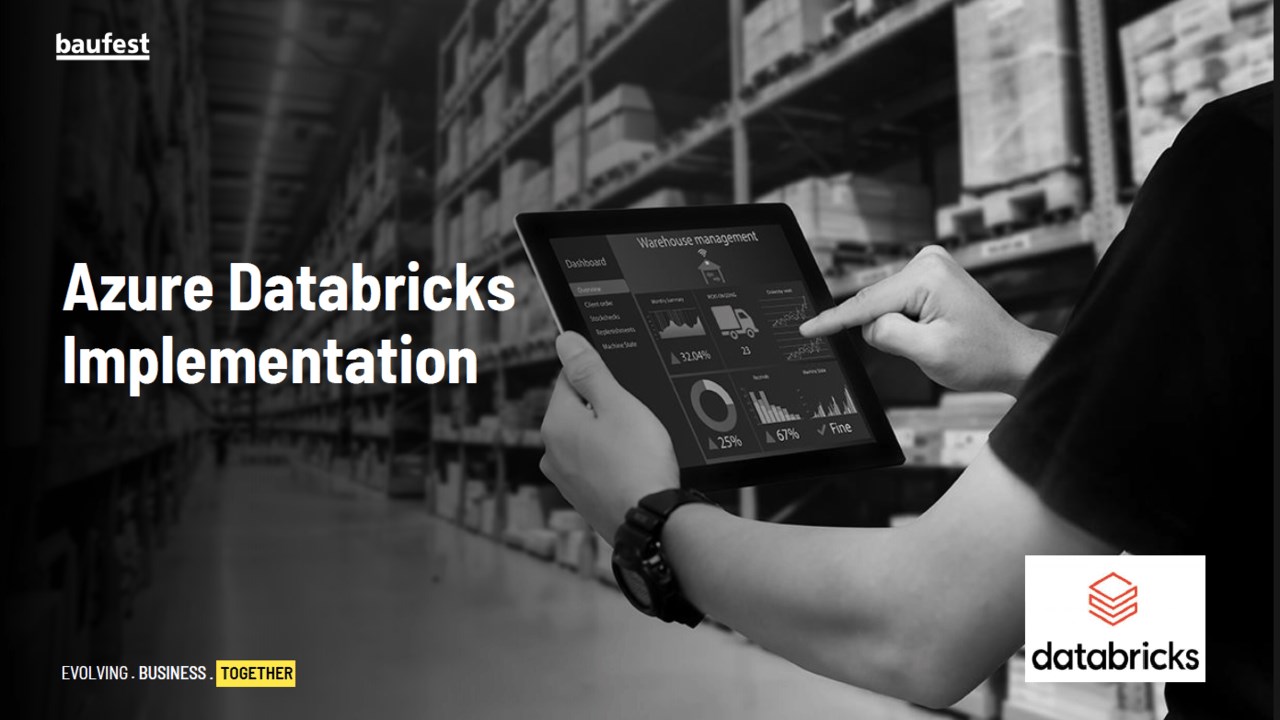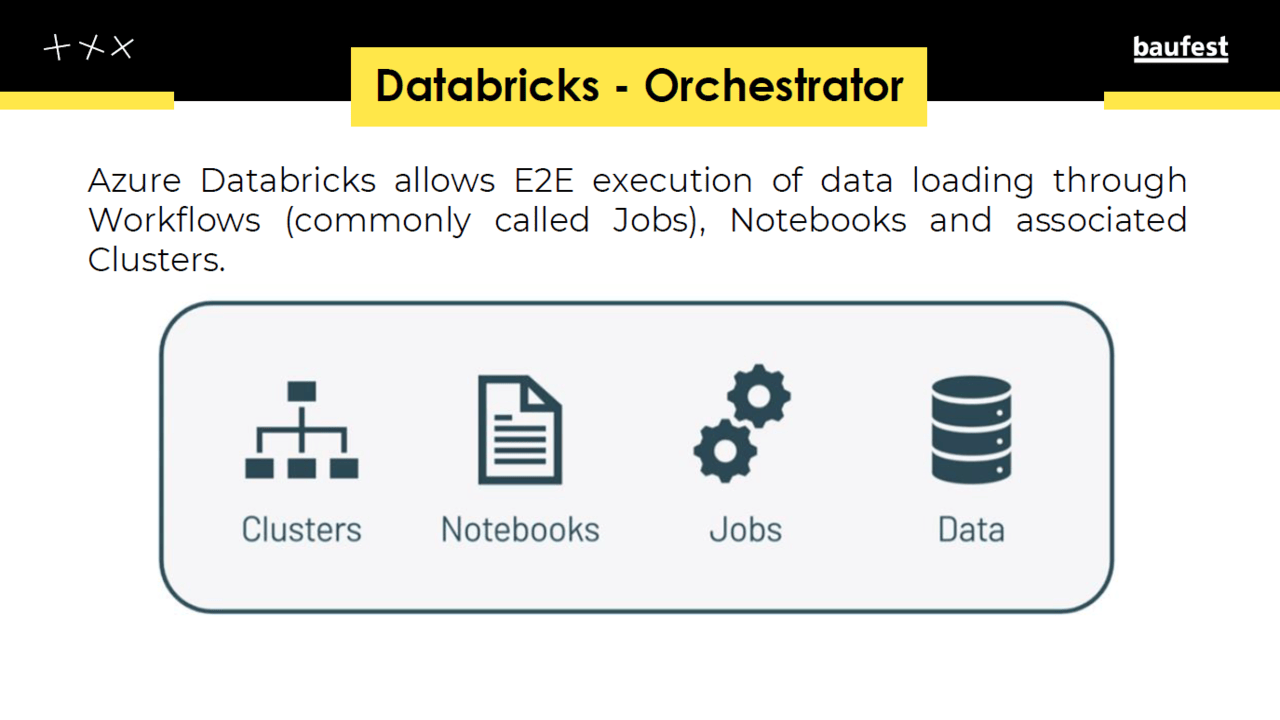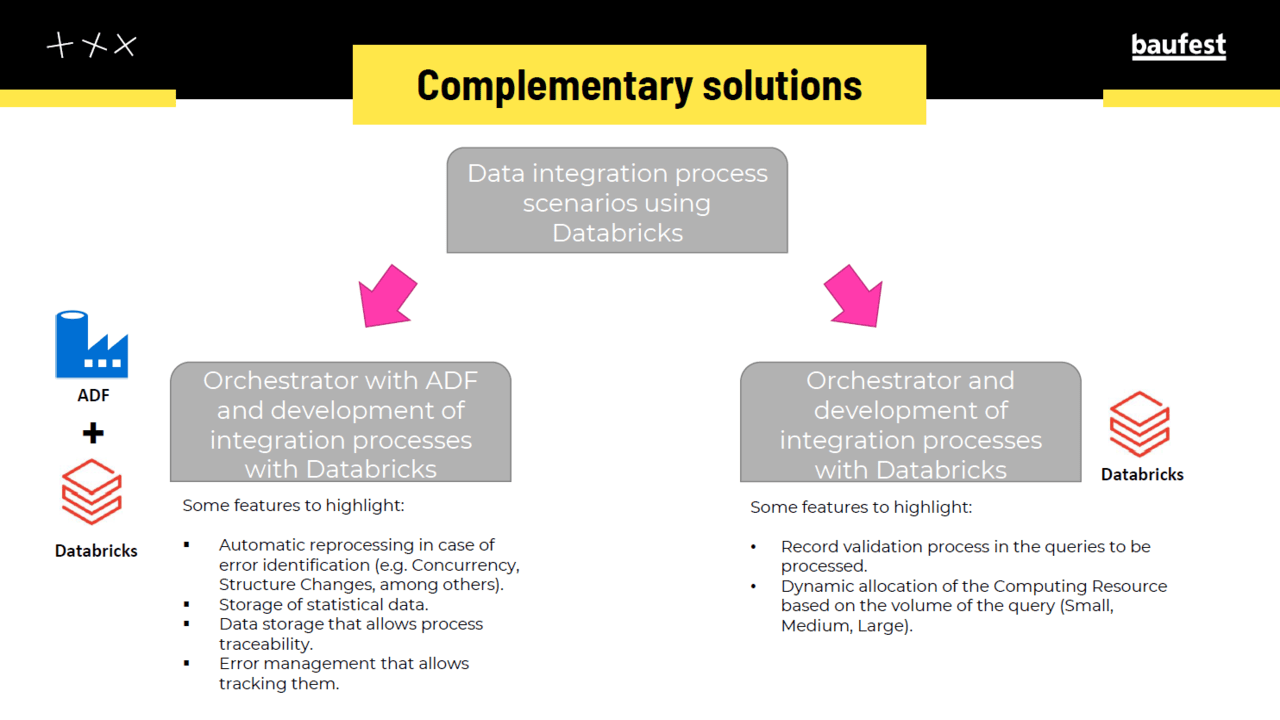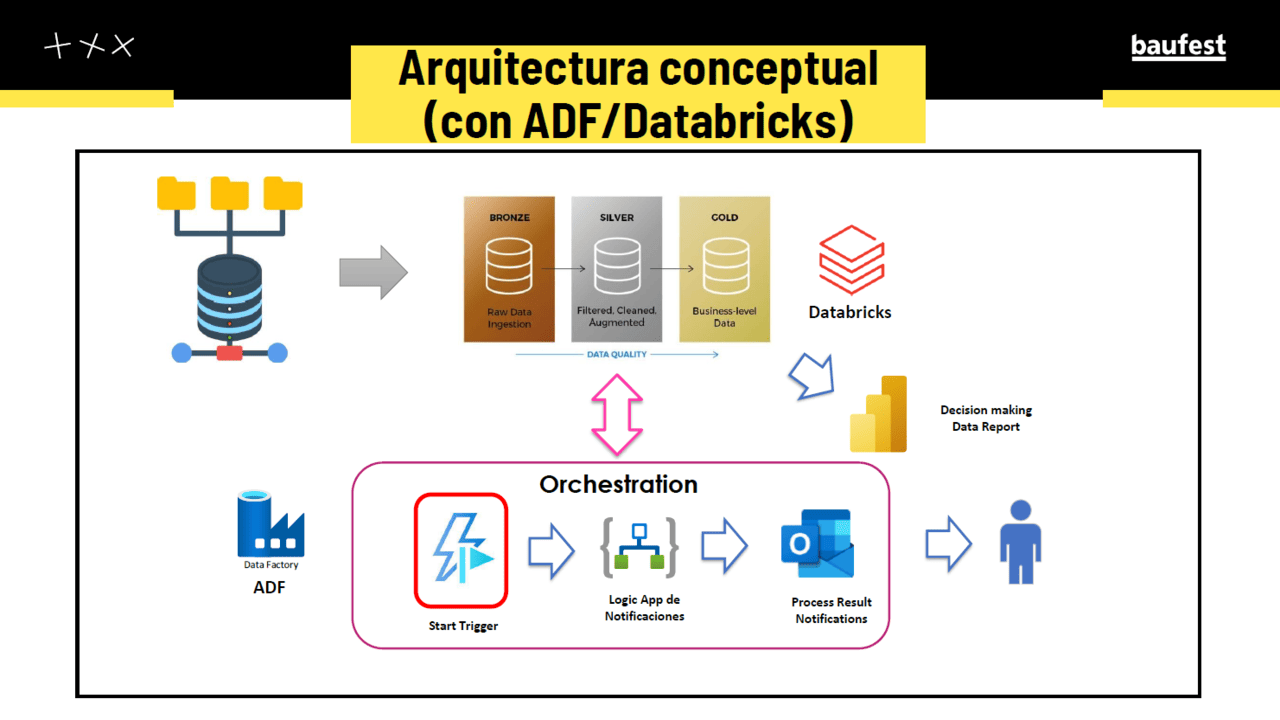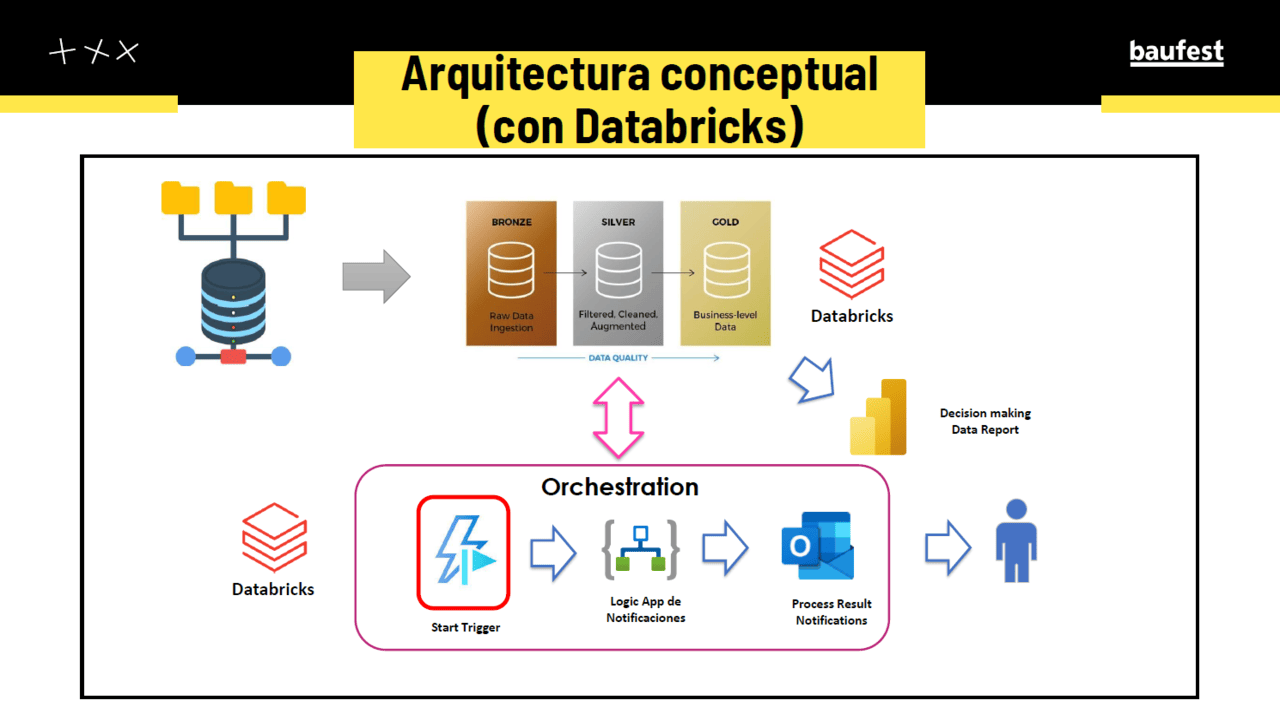- Consulting services
Azure Databricks Implementation
Azure Databricks Implementation
Baufest
We assist our clients in implementing and integrating Azure Databricks, ensuring they stay at the forefront with cutting-edge technology.
We assist our clients in implementing and integrating Azure Databricks, ensuring they stay at the forefront with cutting-edge technology.
With Azure Databricks, we can leverage advanced functionalities for data privacy, control, quality, and lineage while maintaining a regular workflow, driving a comprehensive set of technological components adaptable to any business use case.
By using Azure Databricks, your organization will be able to realize the following benefits:
- Improved Data Processing Performance: Databricks on Azure, with its optimized integration with Apache Spark, enables processing large volumes of data faster and more efficiently.
- Scalability and Flexibility: The ability to automatically scale resources based on demand ensures that enterprises can handle both small and large workloads seamlessly.
- Cluster Management Flexibility: Enterprises can easily adjust Databricks clusters to adapt to changing needs, optimizing resource usage and costs.
- Collaborative Notebooks: Collaborative notebooks enable data teams, analysts and data scientists to work together in real time, sharing code, results and visualizations.
- Unified Data Lifecycle Management: Facilitates collaboration between different roles (data engineers, analysts, data scientists) on a unified platform.
- Easy Integration with Other Azure Services: Databricks in Azure easily integrates with other Azure services, such as Azure Data Lake Storage, Azure SQL Database, Azure Cosmos DB, and Power BI, creating a cohesive data ecosystem.
- Delta Lake for Data Management: Implementing Delta Lake improves the reliability, quality, and performance of data lakes, enabling ACID transactions, data versioning, and efficient handling of large volumes of data.
- Cost Optimization: The ability to scale resources as needed and power down clusters.
We support our customers through our professional services that include:
• Consulting and Strategy:
- Needs Assessment: Helping companies assess their specific needs and objectives in relation to data management and analytics.
- Data Strategy: Assist in defining a comprehensive data strategy that includes architecture, governance, and technology roadmaps.
• Implementation and Configuration:
- Databricks Implementation: Implementation services to configure and deploy Databricks on Azure infrastructure.
- Data Migration: Helping migrate existing data and workloads to Databricks, ensuring a smooth transition and minimizing downtime.
- Cluster Configuration: Configuring Databricks clusters to optimize performance and efficiency of data processing operations.
• Integration with Other Systems:
- Facilitate integration of Databricks with other systems and data platforms, such as databases, BI tools, and cloud services.
- Data Pipeline: Design and develop efficient and robust data pipelines that connect various data sources to Databricks.
• Solutions Development:
- Application Development: Build custom applications that leverage Databricks capabilities to solve specific business problems.
- Machine Learning Models: Develop and deploy machine learning models using Databricks, optimizing the lifecycle of the models with tools such as MLflow.
• Support and Maintenance:
- Ongoing Support: Continuous support to resolve technical issues, perform upgrades and ensure optimal operation of the platform.
- Monitoring and Optimization: Monitoring and optimization services to ensure that Databricks clusters and jobs are running efficiently and effectively.
• Governance and Compliance :
- Security Policy: Assist in the implementation of security and access control policies to protect data and comply with regulations.
- Audit and Compliance: Assist in implementing and maintaining audit and compliance controls to ensure the platform complies with industry regulations.
Learn more
Offering_Databricks